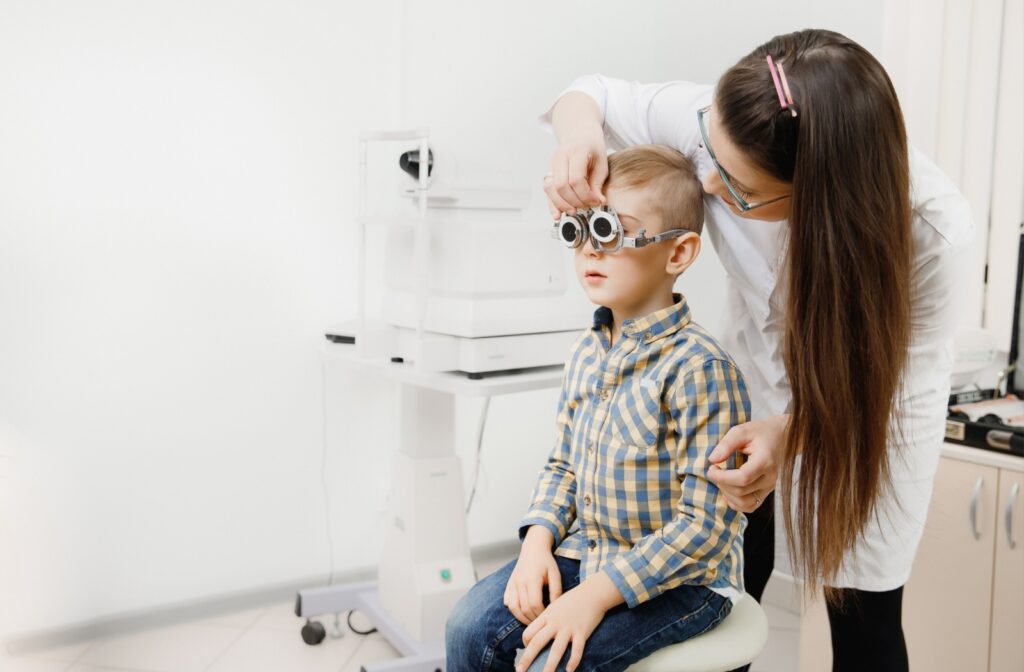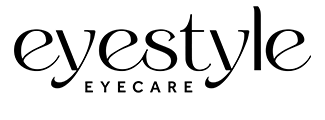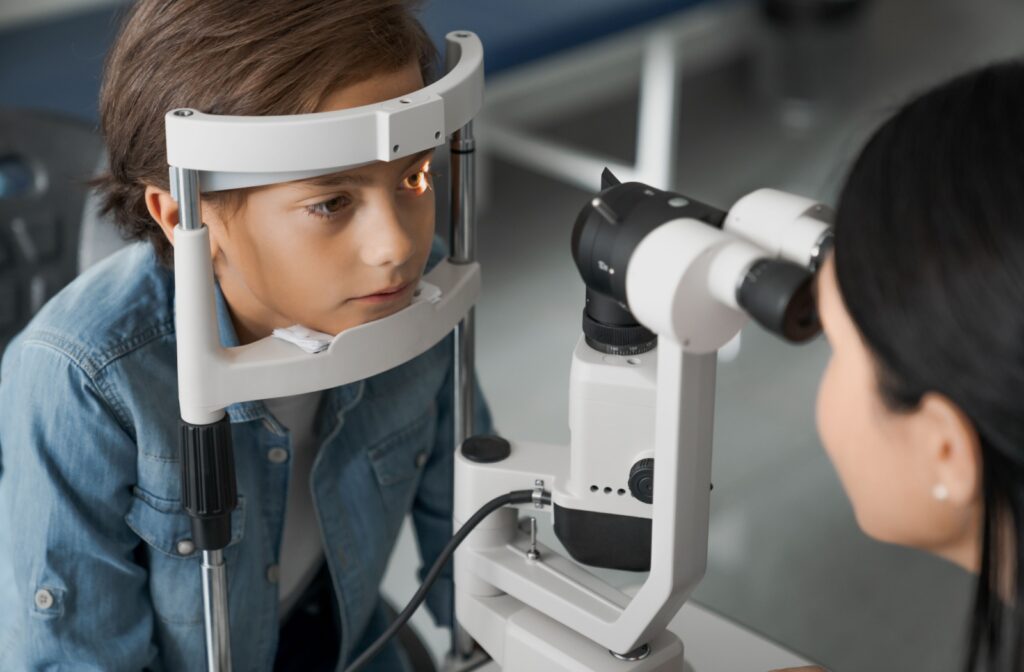While myopia itself doesn’t directly cause blindness, severe forms of the condition, known as high myopia, can lead to complications that threaten long-term vision. Such complications may include retinal detachment, glaucoma, macular degeneration, and myopic maculopathy. These conditions damage the structures of the eye and, if left untreated, can result in permanent vision impairment or even blindness.
The risk typically increases as myopia worsens over time, especially if it progresses rapidly during childhood or adolescence. That’s why early detection and proactive management, such as regular eye exams, specialized lenses, or treatment options like atropine drops, are key to slowing progression and reducing future complications.
What Exactly is Myopia?
Myopia is a refractive error that makes distant objects appear blurry while close-up objects remain clear. Myopia occurs when the shape of the eye causes light entering it to focus in front of the retina rather than directly on it. The condition can range from mild to severe and usually begins during childhood.
While myopia itself doesn’t directly cause blindness, certain complications associated with its progression can pose significant threats to vision.
What Causes Myopia?
Myopia develops due to various factors, often a combination of genetics and lifestyle influences. Here’s a closer look at the key contributors:
- Genetics: If one or both parents have myopia, their children have a higher likelihood of developing it.
- Lifestyle Habits: Spending too much time on close-up tasks (like reading, using digital devices, and studying) can strain the eyes, contributing to myopia over time.
- Outdoor Exposure: A lack of outdoor activities during childhood has also been linked to a heightened risk of developing myopia.
Factors like these underline the importance of managing eye care early to minimize long-term impacts.
Risks Associated with High Myopia
High myopia, which is defined as a refractive error of -5.00 diopters or greater, comes with potential risks. Over time, the elongation of the eyeball increases the strain on the retina and other parts of the eye, potentially leading to severe complications like:
Retinal Detachment
Retinal detachment is a serious condition where the retina pulls away from the layers of the eye that support it. Left untreated, it can lead to permanent vision loss.
Glaucoma
This condition involves increased pressure in the eye, which can damage the optic nerve and lead to blindness.
Cataracts
High myopia can accelerate the formation of cataracts, where the clear lens of the eye becomes cloudy, leading to blurred vision.
With these risks in mind, regular eye exams and proactive care are important for managing high myopia effectively.
Spotting the Symptoms
The signs of myopia are often easy to notice, especially in children. These include:
- Blurred distance vision
- Eyestrain
- Headaches caused by excessive focus
- Squinting or holding objects close to the face
- Difficulty seeing the board in school (leading to poor performance)
- Fatigue after tasks requiring distance focus
If you or a loved one exhibit these symptoms, it’s time to schedule an eye exam. Early detection can prevent complications and make a significant difference in maintaining long-term eye health.

How is Myopia Managed?
Thankfully, there are several effective ways to manage myopia, slow its progression, and reduce the risk of complications. These include both optical and lifestyle options:
Eyeglasses & Contact Lenses
Corrective lenses remain the simplest and most popular way to manage myopia. Modern advancements even include specially designed lenses aimed at slowing myopia progression, particularly in children.
- Eyeglasses offer a variety of styles and are easy to use.
- Contact lenses offer a convenient and discreet alternative for those who prefer not to wear glasses.
Orthokeratology (Ortho-K)
This innovative treatment involves wearing custom-designed contact lenses overnight to gently reshape the cornea. It allows wearers to experience clear vision during the day without the need for glasses or contacts.
Atropine Eye Drops
Low-dose atropine drops, typically administered to children, help slow the elongation of the eyeball (the root cause of myopia progression). With minimal side effects, they’re a safe and effective tool for managing myopia.
Lifestyle Adjustments
Simple lifestyle changes can have a big impact on myopia management:
- Increasing Outdoor Activity: Spending more time outdoors helps reduce myopia risk in children by giving their eyes a break from prolonged near focusing.
- Limiting Screen Time: Too much time on devices can strain the eyes. Follow the 20-20-20 rule (every 20 minutes, look at something 20 feet away for 20 seconds).
- Creating a Healthy Environment: Proper lighting, ergonomic workspaces, and regular breaks during near work can help prevent eye strain.
How to Prevent Myopia
While genetics play a significant role, you can take steps to reduce environmental risks and promote healthy vision habits for yourself or your child. Here’s how:
- Encourage Outdoor Play: Studies show that children who spend more time outdoors are less likely to develop myopia. Support hobbies and games that involve distance focus.
- Practice Screen Time Moderation: Set limits on screen time and encourage breaks when using devices or reading.
- Keep Proper Lighting: Have you kids use well-lit spaces for reading or studying to avoid unnecessary eye strain.
- Schedule Regular Eye Exams: Routine check-ups can catch signs of myopia early and allow for timely interventions.
Regular Eye Exams Are Important
If you or your child have myopia, regular eye exams are important to monitoring progression and preventing complications. Experts generally recommend annual exams to verify that everything is on track. At Eyestyle Eyecare, we specialize in personalized eye care that prioritizes your comfort and long-term vision health.Our clinic is open late most days to accommodate even the busiest schedules. Whether you’re managing current symptoms or taking preventive measures for the future, we’re here to work with you. Don’t hesitate to book your appointment today, and speak with our friendly team.



